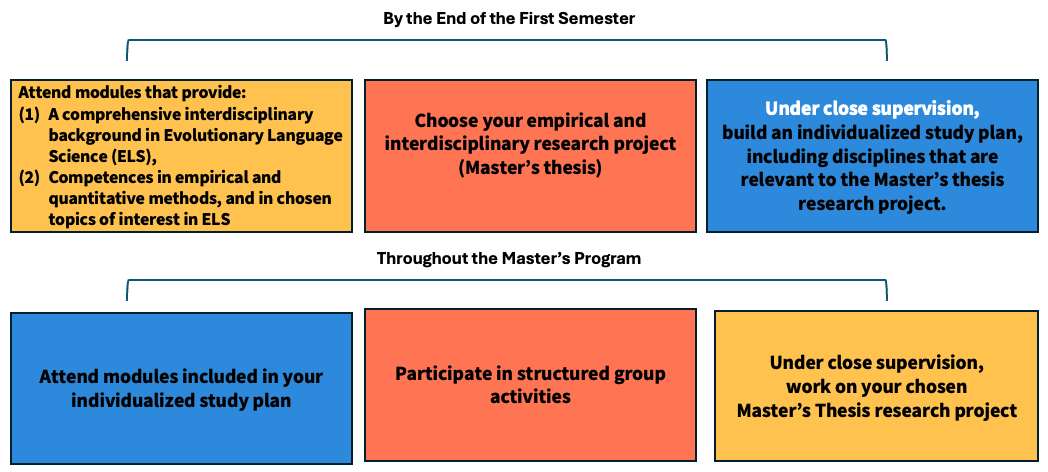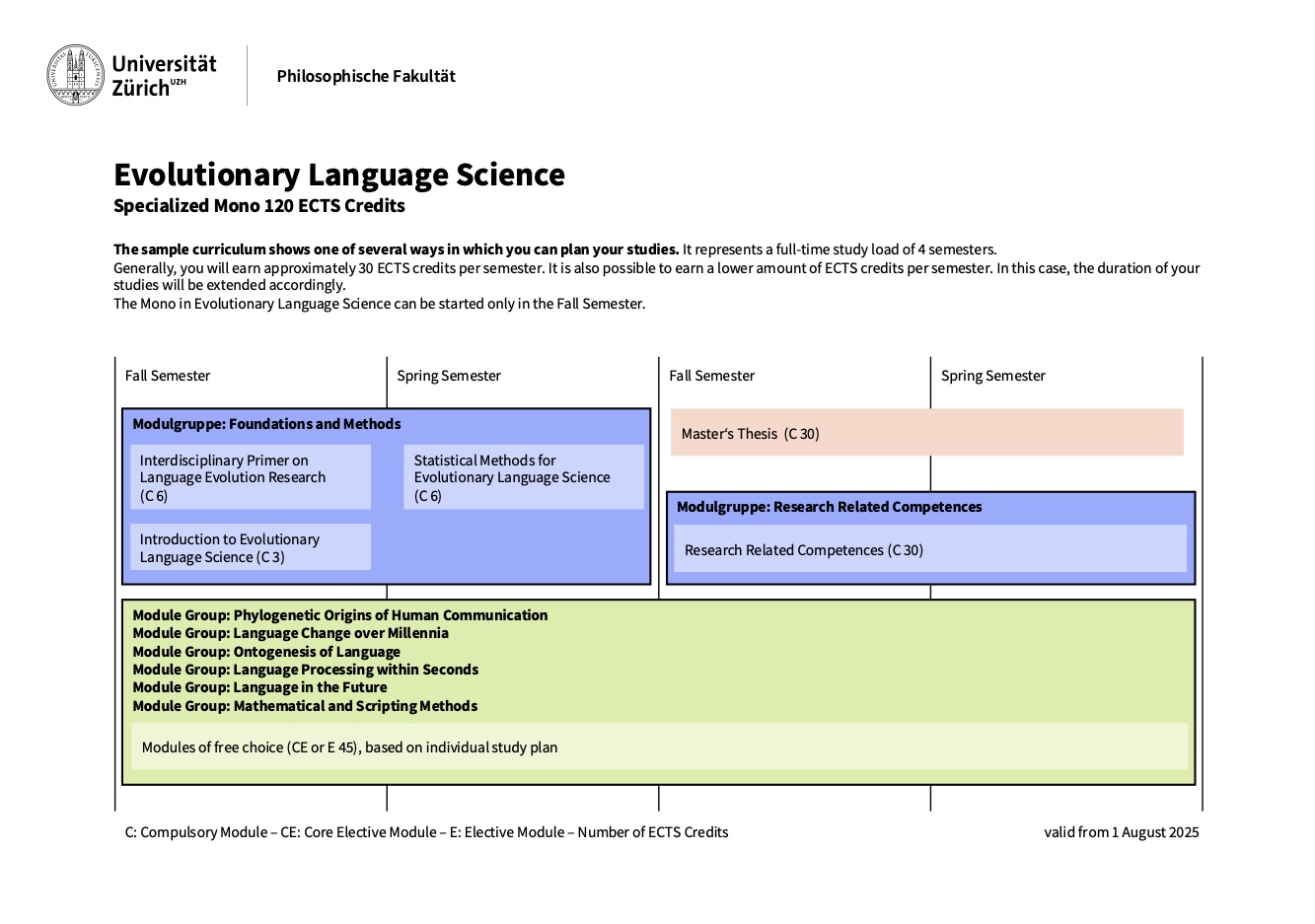Program Structure
More about the structure of the MSc in Evolutionary Language Science
In the first semester, students will focus on two core learning objectives of this Master’s program:
- acquiring a solid foundation in interdisciplinary research related to evolutionary language science and
- mastering quantitative and empirical methods.
By the end of the first semester, students will have to choose the question they want to address in their master’s thesis, which will be an empirical and interdisciplinary research project. They will then choose their supervisor/s based on the chosen topic.
Students will be assisted by the Study Program Coordinator and your supervisor/s on identifying their individualized study plan, which will consist of selected modules that are specifically tailored to the skills and competences required for working on their final master’s thesis research project.
Students of our Master's Program will be an integral part of a scientific community focusing on the study of language evolution and of a peer-to-peer feedback scheme, also involving PhD students and Postdocs of the National Center of Competence in Research “Evolving Language”.
What can students learn in each module group?
| Module Group | Description |
| Foundations and Methods | This group comprises compulsory modules for a total of 15 ECTS credits. Here students will acquire basic to intermediate competences in quantitative methods, as well as a solid interdisciplinary background on language evolution. |
| Phylogenetic Origins of Human Communication |
With close guidance, students will develop an individualized study plan designed to equip them with the essential skills and knowledge needed to successfully undertake their chosen research project for the Master’s thesis. The individualized study plan will include modules from any of these these six module groups (thematic groups) for a total of 45 ECTS credits. |
| Language Change over Millennia | |
| Ontogenesis of Language | |
|
Language Processing within Seconds |
|
| Language in the Future | |
|
Mathematical and Scripting Methods |
|
| Research Related Competences | In this compulsory module (30 ECTS), students will develop the essential skills and competencies required to successfully complete their Master's thesis research project (e.g., data engineering and analysis, literature review, ethical application procedures). |
| Master's Thesis | In this module (30 ECTS), students will work on their chosen interdisciplinary and empirical research project and write the corresponding paper. |
Overview of the program structure
Participating departments and institutes across faculties
Several departments and institutes across faculties contribute to this program by offering cross-listed modules, including the following:
Institute for the Interdisciplinary Study of Language Evolution
Department of Computational Linguistics
Department of Evolutionary Anthropology
Department of Evolutionary Biology and Environmental Studies
Department of Mathematical Modeling and Machine Learning
School of Transdisciplinary Studies

